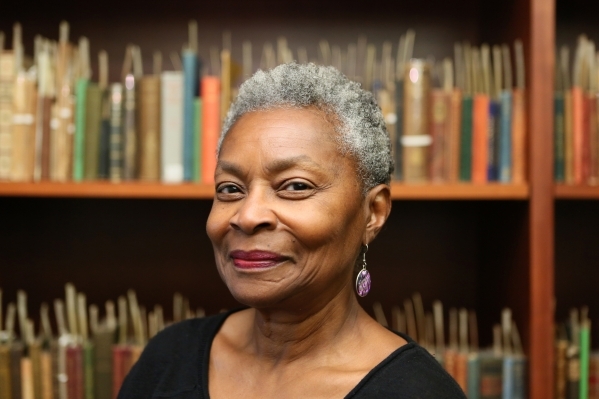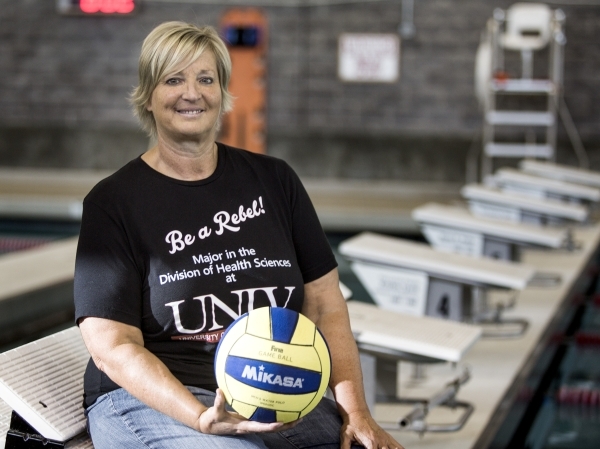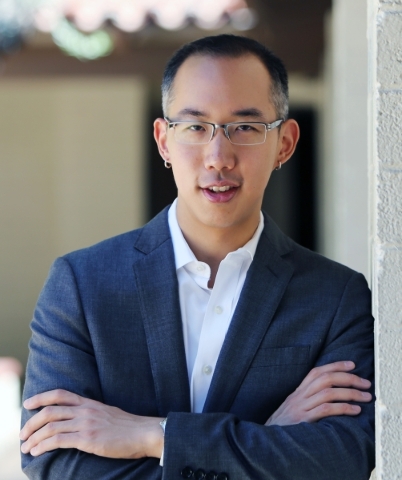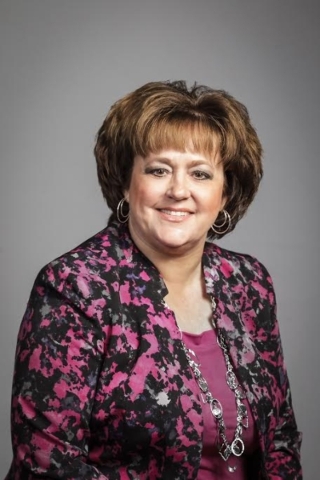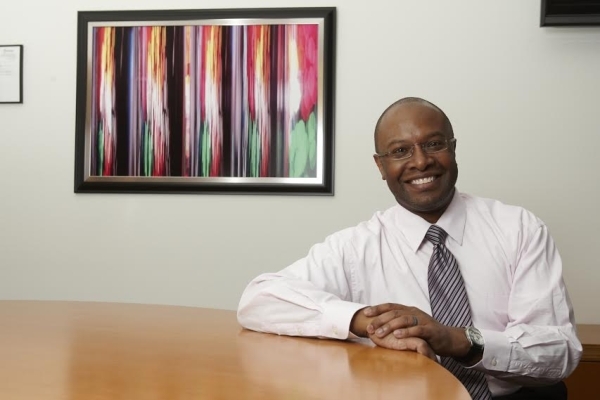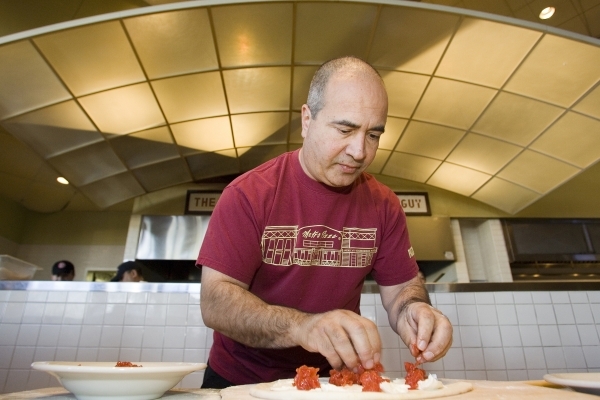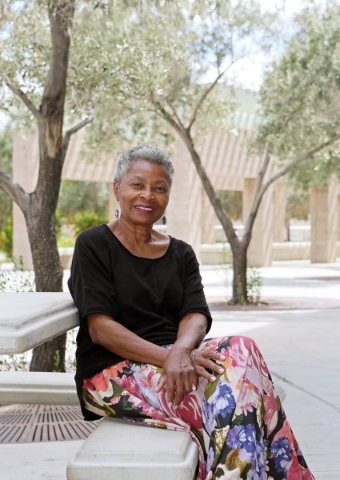Tips for new college freshmen: Enjoy the ride
Study hard. Plan your time. Meet people.
All are nuggets of advice incoming college freshmen often hear. And while they're great as far as they go, they may not cover the breadth of the college experience for new students.
That's because college is about more than just what happens in the classroom. In fact, we're not mathematicians, but we'd guess that half of what a student learns in college takes place in the dorm, the dining hall, the student union, the performing arts hall and even, yes, in a bar or two.
During the next few weeks, many Southern Nevadans will begin their collegiate careers. To help them on their journey, we asked local alums for whom freshman year is now just a memory to share a few things they have, in retrospect, learned about college life.
DON'T SECOND-GUESS YOUR DECISION
It's natural after making a big decision — and choosing a college is a pretty big decision — to second-guess it.
Don't, suggests Dr. Dylan Wint, neurologist and psychiatrist with the Cleveland Clinic Lou Ruvo Center for Brain Health.
Wint attended Stanford University and admits that when he arrived on campus, "I was pretty nervous about whether I had made the right choice."
"Looking back on it now, I really had done all of the research," adds Wint, who wishes that he had been able to fully enjoy his first few months of college instead of spending that time fretting about whether he should even have been there.
Understand, Wint says, that "for the most part, you made the decision based on a lot of good information, and decided this was the place that came to suit you best, and the likelihood is that you were right about that. But anytime you make a big decision and then you find it there in front of you — whether it's a car, a house, whatever — you tend to second-guess."
LIVE IN A DORM
Daniel Young, associate professor in the physical therapy department at University of Nevada, Las Vegas, says, "I wish I would have been more thoughtful about where I wanted to go to college. I always had planned on going to college, but really didn't spend any time thinking about or planning where I could go."
Had he planned a bit better, Young might have spent his freshman year in a dormitory.
"I was funding (college) myself and applying for grants and using savings to pay for living expenses," Young says. "So I found the cheapest off-campus apartment I could find and sort of got stuck together with five roommates."
Young found food shopping, cooking and maintaining a household took up a good deal of his time. In addition, he didn't have the chance to enjoy the communal living experience and friendships that come with dorm life.
"My wife and most of my friends had that, and I hear about the fun and excitement they had," Young says.
"I really wish, looking back, that I had planned better and I could have spent at least that first semester or that first year in the dorms."
CULTIVATE INDEPENDENCE
Ron Lawrence, executive director of the Community Counseling Center of Southern Nevada, notes that incoming freshmen often don't realize "how different life is going to be."
Moving from home to school is "a tremendous adjustment process for the young person who has been nurtured by their parents," Lawrence says. "All of a sudden, they're on their own and have to make some decisions without Mom or Dad being there"
So, Lawrence says, it's vital for freshmen to "cultivate physical and emotional independence, because it's strange when you get up some morning and Mom is not there to hand you a cup of coffee. Some kids relish the idea of being on their own, but for some, they really miss the parental touch."
TALK TO PROFESSORS
Like most freshmen, Claytee D. White, director of the Oral History Research Center at UNLV Libraries, was nervous about meeting her professors.
"I was so intimidated when I first walked onto a college campus," she says. "I was from a rural environment. I was a sharecropper, and now I'm talking to a professor with a Ph.D. from some school like Harvard or Yale and I'm going to talk to him? Oh, my. No way."
But college gives students the chance to meet people of all sorts that they might never have a chance to meet otherwise, and that includes professors. White notes that the associations a student makes even can prove beneficial later on from an academic or career standpoint.
That intimidating professor? "Maybe one day you'll be their research assistant," White says.
GET INVOLVED
Schyler Richards, associate vice president for advancement at Touro University Nevada, grew up in Carson City and began her freshman year at the University of Nevada, Reno.
"I lived in a dorm. I got involved on campus. I just think that experience helps you to grow as an individual and helps, really, to entrench yourself in campus life, which I think is really important for a freshman," she says.
While Greek life is one way for a new freshman to connect with other students, "if fraternities and sororities aren't your thing, find the thing that is," Richards says.
"It'll help you find your niche and help you find like-minded people, and it's such a positive impact on your future growth and development."
EXPLORE EVERYTHING, WITH PASSION
"College is and should be a massive experiment in sleep deprivation," offers Robert Hoo, lead organizer of Nevadans for the Common Good. "Go to class. Study hard. Make friends with people from different backgrounds. Stay up all night with said friends talking about things you are passionate about. Get involved with causes. Protest the administration.
"In short, follow your heart, because college is about exploring who you are, what you want to do with your life and who you want to do it with. Above all else, enjoy it, because it'll be over before you know it."
"There's a lot out there and you should take advantage of it," Hoo says. "Not that classes aren't important. You don't want to say that. But college is about a lot more than learning (in the classroom). It's also about all these other people who are also part of the university."
REALIZE YOU'RE NOT ALONE
Myron Martin, president of The Smith Center for the Performing Arts, admits that "if I had to do it again, I probably would focus a little more on studying that first semester and a little less, maybe, on going to a couple of parties."
The desire to fit in socially can bring with it a few pressures for freshmen. But, Martin says, "had I known that all freshman had the same kind of freshman angst, I might have been more gregarious. I might have been less timid in meeting other people.
"Know what? They're all exploring and doing something new and are a little timid, too."
If it helps, focus on this reality of college life: Never again, Martin says, will a young person "have the opportunity to meet that many people who are the same age with similar interests. You're just forced together."
"If you come out of your shell just a little bit, others will, too, and often you can make lifelong friends in college," he says.
TRAVEL
While attending UNLV and for several years after graduating, Vaune Kadlubek traveled the world playing for and then coaching the U.S. women's national water polo team.
Kadlubek, now UNLV health sciences advising center director, calls the education she received through her travels "priceless" and encourages students to travel whenever they can, however they can, to wherever they can.
"I teach a class on aging and I require (students) to do a bucket list and, often, one of the many comments on the bucket lists is to travel the world," Kadlubek says. "And I tell them, 'Don't wait until you're older to travel.' "
College students can benefit from study programs abroad or take advantage of discount travel deals targeted at them. Either way, "we only go through life once," Kadlubek says. "Stay at the hostel. Take the train. Travel to Europe on (rail) passes."
AVOID CREDIT TRAPS
It's easy for college students to get credit cards, and using them without knowing how they work can land a freshmen in financial troubles that will continue long past graduation.
"Use extreme caution with credit cards," says Deborah Danielson, a certified financial planner and president of Danielson Financial Group.
Often, she says, students "have gotten no education about how to use them, and they use it for every frivolous thing, and when they get done, it's, 'What have I done here?' "
Never charge anything if "you don't have any idea how you're going to pay for it," Danielson says. Pay off your balance in full each month. Educate yourself about how credit works. Use credit wisely and you'll begin to build a solid credit history.
REINVENT YOURSELF
John Arena, founder and co-owner of Metro Pizza, recalls that, as an incoming freshman, he didn't realize "what a remarkable opportunity (college) is to reinvent yourself."
That's because "a lot of the baggage you've accumulated from kindergarten to your senior year in high school now can be washed away, and you get into a whole new environment where you can become, if you have the will power and the vision, the person you would like to be without people's preconceived notions of you getting in the way."
Arena experienced it himself.
"I went from being a mediocre student in high school to being a successful student in my university years because I was going in with a fresh start," he says. "So that was certainly a part of it, and I think what was also important was, early in my freshman year, I realized I had to build habits and disciplines that were going to carry me through (life)."
Today, Arena adds, "you can draw a straight line from what my attitude became in my freshman year of college to what I did with my business."
Contact reporter John Przybys at jprzybys@reviewjournal.com or 702-383-0280 or find him on Twitter: @JJPrzybys.



